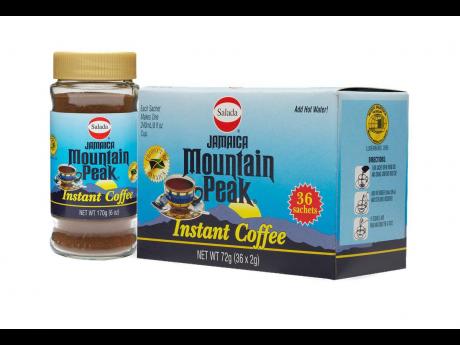Salada turns to the court to stop JACRA
Tuesday, September 1, should have seen Salada changing the formulation of its instant coffee to include 30 per cent Jamaican beans, up from the 10 per cent that its products now incorporate.
Instead, the company has turned to the courts for an injunction against commodities regulator, JACRA, which recently mandated the new quota rule.
Salada Foods Jamaica Limited, producer of Jamaica Mountain Peak instant coffee, is said to have filed the application for the injunction on Monday. The details of the application were not ascertained, nor when the Supreme Court is due to hear it.
Salada and the Jamaica Commodities Regulatory Authority have been at loggerheads over fees and quotas since the regulator’s formation more than two years ago.
JACRA first required Salada to increase the local coffee content in its instant coffee formulation to 30 per cent in March 2019, but a month later amended that to allow the company a 10 per cent local coffee quota in response to Salada’s request for relief in order to compete in the domestic instant coffee market.
The waiver came to an end in December 2019. However, a statement from JACRA said the review period was protracted by “related considerations which impacted the sustainable growth and development of the Jamaica coffee industry”, and that Salada was allowed to continue with the 10 per cent quota until further notice.
In a letter dated August 11 of this year, JACRA advised Salada that it would be required to revert to the 30 per cent use of local content, starting September 1.
In a market filing shortly after, the coffee company, which trades on the Jamaica Stock Exchange, indicated its opposition to the quota rule, saying it would change the taste profile of its coffee, likely with commercial consequences for the Mountain Peak brand; and add to the company’s cost of sales, given that local coffee is priced at nearly three times what its costs the company to import coffee beans.
“Salada’s concern that an increase in local coffee content would impact its profitability is noted. However, consistent with the country’s development plan and growth agenda, priority must be given to value-added production and export-oriented activities,” JACRA said in response via email to the Financial Gleaner.
“With respect to the claim that the requirement would affect the taste profile of its instant coffee, it is conceivable that the increase in the percentage of Jamaican coffee in the blend ought to enhance rather than diminish that characteristic,” the regulator said.
Salada’s general manager Diana Blake Bennett declined to comment on any dealings between the company and JACRA, except to say the regulator had not changed its position, and that discussions were now under way with the minister in charge of the agricultural sector.
JACRA also confirmed that Salada’s request for an extension of the concession and related issues are currently the subject of deliberations by the minister, ministry officials and itself.
The regulator defended its directive to Salada, saying developments in the industry, including the impact of COVID-19, has left small coffee farmers sitting on significant inventory of non-exportable Jamaican coffee.
The latest tally on inventory held by members of the Jamaica Coffee Exporters Association was estimated at 600,000 pounds of coffee left over from the 2019-20 crop, of which 12 per cent belongs to Salada. The new season, which began on August 1, is projected to yield 220,000 boxes of Jamaica Blue Mountain and 25,000 boxes of High Mountain coffee, reflecting a 15 per cent increase in production over the previous crop.
“Although Salada is the only manufacturer of instant coffee in Jamaica, the regulations govern the entire industry,” JACRA said.

